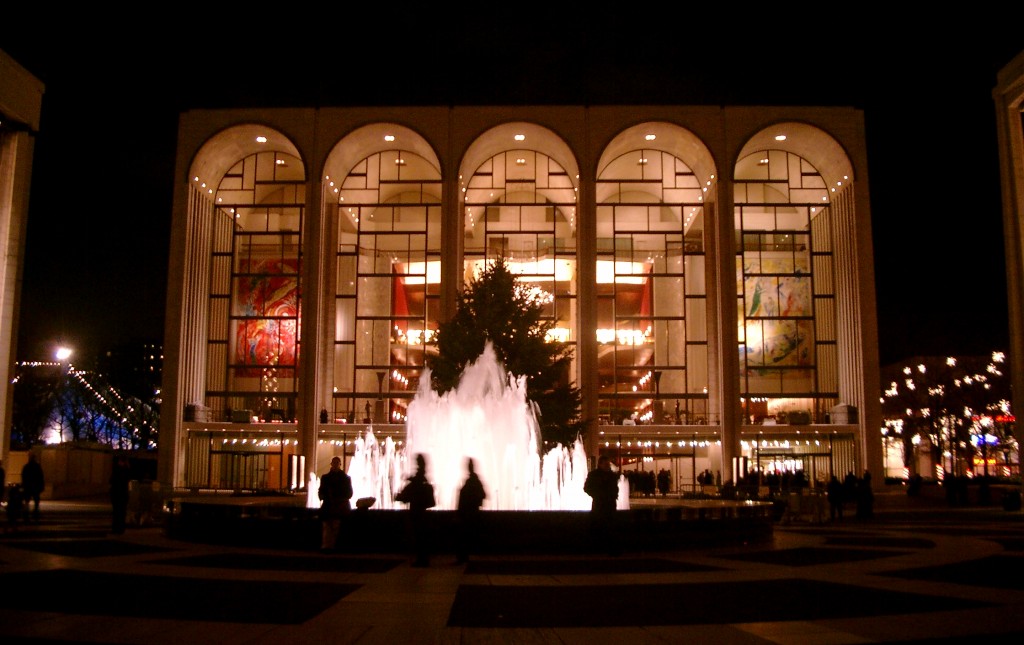The show must go on – but who’s watching?
News and drama. The two are, in modern terms, basically inseparable: stories hit the headlines precisely because they are dramatic, that things are at crisis point, that heads may roll. This is what makes for column inches. And also, as it happens, stirring opera plots. Appropriately enough, then, the New York Met received a great deal of attention last summer for its great showdown of unions and management, musicians and board. Be honest, now – if you are an opera lover, you panicked. The Met might not be to everybody’s taste, but it is a grand and highly respected space with a reputation for attracting top-quality singers, players, directors and back-stage creators, and now that it runs worldwide cinema broadcasts, its productions are available to us all.
Thanks to the outstanding work of Jessica Phillips, chairman of the Met’s orchestra committee, and the intervention of both unions and impartial financial advisors, the situation was dragged back from the edge of disaster in the nick of time, and the 2015/16 season could run after all. General manager Peter Gelb, his board, his players and singers, and the rest of the staff, breathed a sigh of relief, and the show – for the time being, anyway, was allowed to go on.
But the absence of an imminent collapse does not, of course, mean that all is now sunshine and bunnies at the Met. In a comprehensive and thoughtful article published in The New Yorker this week, James B. Stewart provides an admirably detailed outline of the the summer crisis, how it came about, and how the situation today is still uncertain and unhappy in many regards. The battle was won, it seems, but the war is far from over.
As a happy freelancer in the UK scene, I confess I find the US musical landscape somewhat forbidding. Visiting American scholars and performers have marvelled at the freedom that we have in this country, the flourishing entrepreneurial spirit that makes for such a vibrant creative environment. Of course, ours is not a land without cultural difficulties, whether it be education, funding, balancing the demands of the box office with artistic freedom, or other similar challenges. But many people in the UK radiate the strong sense, I would venture, that music and the arts are for everyone, everywhere, and your background, economic status, ethnic origins and educational level are completely irrelevant as to whether you should be entitled to listen to Beethoven or not. The ideology is there, even if the necessary support and resources are still catching up.
Now, it may be that there is just as strong a sense of striving for cultural equality in the US, and I have simply not encountered it. But my greatest fear for the Met lies not in its struggle for endowments, or in keeping union staff satisfied with working conditions. It is in its attitude to audiences.

Try it for yourself: visit the Met website. It’s a nice website, packed full of features and videos, opera synopses and merchandise. The resources it places at your disposal are many and varied. Among them are ticket offers for the under-40s, schools programmes, education events and college link-ups.
Oh, did you not see those? You have to dig. You need to look under ‘Season & Tickets’ at the top to dig out the special offers. And ‘Education’ is not in the top menu at all – it’s at the bottom. But if you’d like to give the Met money, then that’s at the top. That’s easy to find.
This is worrying. It’s not that I don’t understand the need for major organisations such as the Met to make money and find donors – heck, most major UK arts companies are in the same boat. But if you want to sell more tickets, encourage a more progressive attitude to productions, fill your seats at controversial shows and new commissions, then you need to help people get there. That means helping them get there educationally and financially. Look at ENO website. Draw your mouse across ‘Join in’ and ‘Experience’, and see all the things you can do to get closer to the action. Or the Royal Opera House: here, not only is ‘Learning’ before ‘Support us’ in the menu order, but a helpful little box on the front page offers to get you a good price on your next visit. ‘Do you know when you want to come and how much you want to spend?’ it asks politely. ‘Can we find a ticket for you?’.
These are simple tactics, but they make a big difference. They tell the world quite clearly that the opera house needs its patrons, cherishes its patrons, values and wishes to help its patrons engage with productions in the best, most accessible and affordable way possible. It’s not the only thing that’s needed (heaven knows, ENO still have plenty to worry about), but I’d wager it’s one of the many reasons why the ROH is doing so very well. And why the Wigmore Hall has just announced its great new scheme of £5 tickets for under-35s, knowing that this is a way to new audiences.
So, all ye at the Met – remember, of course, that the musicians are as important as the productions… but remember also that the whole jolly lot is pretty useless without an audience. Help them find out more, run those Carnegie Hall concerts and others besides. Get people excited about opera. Because opera is great, and moving, and profound, and important. And the more people who can see that, the happier they – and you – will be with the state of the art form in New York.

